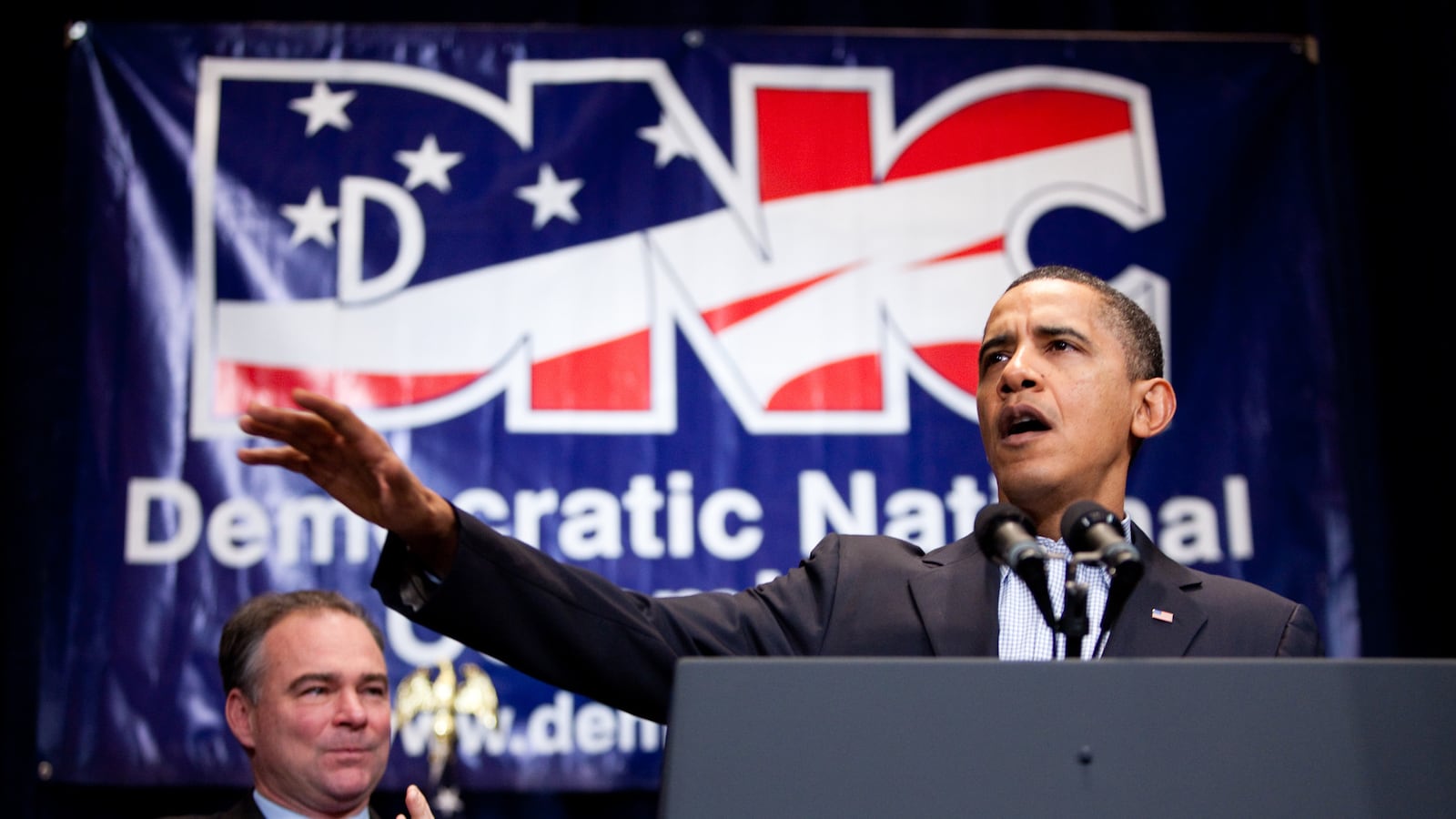Although its candidates received nearly half of their popular support in 2012 from racial minorities, less than 2 percent of the money the Democratic Party spent on consultants over the past two election cycles went to firms with minority ownership.

This finding comes from a report released this week from an ideologically sympathetic source, who says the party risks alienating its base if it doesn’t wise up.
PowerPAC+, a political action committee funded by major Democratic donor Steve Phillips, found that of the $514 million paid to consulting firms over this time period, only $8.7 million went to firms that were either minority-owned or had a minority principal.
This means that only 1.7 percent of the spending by the Democratic National Committee, Democratic Congressional Campaign Committee, and Democratic Senatorial Campaign Committee went to minority business enterprises (MBEs). Some 45 percent of Democratic support in 2012 came from racial minorities.
But what’s the fuss? Phillips said the figures underscored the fact that the Democratic Party had not done a good job fostering a political class that reflects its popular support—something that could cost the party over the long term.
“If the Democratic Party is going to be competitive in coming years, it has to be ensuring that its political class, its operatives and consultants, are as knowledgeable about the communities it’s trying to communicate with as possible,” Phillips told The Daily Beast. “The fact that we have elected a black president may have obscured this reality that who is getting the dollars does not reflect the constituency… If we have an election without Obama, we may be in for a rude surprise.”
PowerPAC+ identified 49 minority-owned firms, but found that only 14 received contracts from Democratic Party committees.
“There’s plenty of talent that’s out there,” Phillips said. “It’s more of a problem of societal tendencies, that people turn to who they know, and who they know looks like them, and the problem gets replicated.”
The report is sure to stir up chatter among minority caucuses on Capitol Hill—and beyond. In the wake of the report’s release, Gautam Dutta, the executive director of the Asian American Action Fund, told The Daily Beast that the report was an “outright embarrassment to the Democratic Party, and the party should be embarrassed.”
“We’re not surprised, but this should be a wakeup call for the party, because you can’t ignore communities on whose support you rely,” he said.
Democratic officials pushed back on the report, emphasizing the steps they had already taken toward inclusivity and racial diversity among its ranks.
One Democratic official ticked off the stats: Five of nine DNC officers are minorities, 43 percent of the DNC’s executive committee are people of color, and of the committee's senior staff, seven of 16 are people of color.
“There’s a lot of different ways to measure diversity,” the Democratic official said, adding that the report “wasn’t fully comprehensive—if the goal was to highlight the party’s commitment to diversity, I don’t think it’s all-inclusive… [contracts are] not the only way to measure.”
DCCC spokeswoman Emily Bittner added that they had hired their first diversity director and were working with the Congressional Black Caucus and Congressional Hispanic Caucus to identify minority-owned vendors.
“Our efforts cannot and will not stop at these measures, and we look forward to continuing to work with our allies as we advance our shared goals of a Democratic Party infrastructure that reflects our diversity,” she said.
Still, Democratic National Committee spokesman Mo Elleithee acknowledged that the party could do better—and argued that Dems would be happy to measure their record against that of the Republican Party “any day of the week.”
“I am happy that we have people who hold our feet to the fire, because that’s how we bring about change,” he said. “I feel good about our commitment to diversity.”
PowerPAC+, which calculated figures using publicly available election data, defined MBEs as businesses with “ownership share held by a person who is African American, Latino, Asian American or Pacific Islander, or Native American.” They also included businesses with at least one principal who could be considered a minority.






